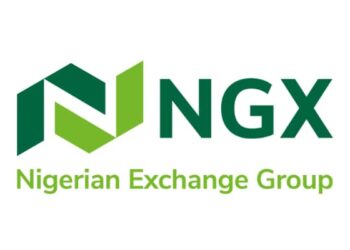The current economic situation of many Nigerians, be they unemployed, employed or small business operators is, to say the least, perplexing and confusing. Inflation continues to worsen the cost of living of the populace eroding the purchasing power of citizenries with no succour in sight. Even though inflation is a concept that affects all of us, most importantly high inflation is hostile to even the economy. With persistent inflation, businesses and households will continue to perform poorly and we will continue to pay more for the same goods and services. The consequence and impact of inflation (price instability) in recent times in Nigeria cannot be over-emphasised. We have witnessed job losses, an increase in malnutrition, declines in social status, food insecurity, high levels of different forms of begging from family, neighbours and friends and so on. Likewise, most Nigerians in small businesses are struggling to survive daily because of low sales, accelerating inflation and worsening living conditions. It may even result in a higher mortality rate in the short term because when health care is expensive and unaffordable it will widen the inequality that already exists. More lower-income earners are likely to replace healthier food options with what is available, which could be toxic and detrimental to health. Because cost of living crisis affects more than just our bank accounts, it hurts and affects mental health as it increases worry and anxiety.
Data from the National Bureau of Statistics (NBS) reported that the headline inflation rate for May 2023 was 22.41 per cent and 22.79 per cent for June 2023. The same inflation rate was 15.68 per cent in 2016 and 9.01 per cent in 2015. Currently, the inflation rate in Nigeria is the highest in the last 17 years and this is a cause for concern. Though cost-of-living and inflation crises are typically global, the impact is more on the African continent. For instance, inflation in Ghana reached 42.50 per cent in July 2023, the highest level in two decades. Ghana has over 100 per cent increase in food prices and transportation costs. The energy cost costs have risen dramatically. Inflation is running at 44.81 per cent for Sierra Leone as of June 2023, the highest in recent times, driven by food and fuel inflation and the depreciation of the leone. Inflation has risen to 36 years high in Congo and many African countries are under growing pressure of high inflation and an unbearable cost of living.
Even though is a global phenomenon at this time the inflation the steady inflation in most African countries has been largely driven by the effects of the war in Ukraine, food, fuel and energy costs. In Nigeria, Forex unification, government policies, public debt and recently reviewed fuel costs are the main causes. Importantly, when prices of energy, food, commodities, goods, and services go up, purchasing power usually goes down. The persistent rise in the inflation rate may continue to erode the value of African currency against the dollar and continue to cause general price instability and this is a concern.
Based on the aforementioned and from the inflationary perspective, to achieve adequate price stability, the government needs to adopt significant structural policy reforms, and tight monetary and fiscal policies to maintain stronger growth rates in terms of improved Gross Domestic Product (GDP) and to stabilize tide of inflationary pressures on our economy. The stipulated palliative of 500 Billion to poor households by the federal government of Nigeria is laudable. However, it is expedient to consider support for the structured small-scale businesses that are priorities for economic growth, job creation and social cohesion. Recent empirical studies show that SMEs contribute to over 60 per cent of GDP and over 70 per cent of total employment in low-income countries, while they contribute over 95 per cent of total employment and about 70 per cent of GDP in middle-income countries. So it is my opinion that to stimulate the Nigerian economy substantial part of the 500 billion palliatives can be considered as loans at 0 per cent interest to structured, traceable and collateralised SMEs with a repayment within 5 years. As such it will improve working capital, and stimulate businesses through technology adoption, asset acquisitions and business growth.
The SME sector can play a major role in economic growth at this point through poverty reduction, and job creation. The sector is labour-intensive and can provide a reasonable reduction in the level of unemployment rate in the country but the government needs to provide an adequate enabling environment and palliative. It is further advocated that political leaders should minimise avoidable public spending, strengthen the judicial system, stiffen the anti-corruption drive, address insufficient infrastructure, and build strong and effective institutions.
Furthermore, institutions and individuals have the opportunity to beat inflation by accelerating the preservation of capital and strengthening purchasing power with income addition. This can be done by acquiring investments particularly assets such as real estate because they usually keep up with inflation. Remember one million (N1,000,000)naira today will not acquire the same value of goods and services in 10 years mainly due to inflation. Therefore, investing is key to hedge against a sharp inflation impact because it erodes the value of savings if funds are just left in the bank accounts.
Conclusively, it is imperative to consider investing in other currencies, diversify your investment portfolio internationally if you can, and consider inflation-protected securities with potential for higher growth like equities, Gold Shares ETF, or mutual funds. These can earn more interest returns per year than the inflation rate therefore the options are reasonable. It is also possible to start a business, cultivate passive income generation, and/or even reduce unnecessary expenditures to increase the propensity to save. You might need to reach out using the details below for the necessary advice or for any further information you may require. Good Luck!





